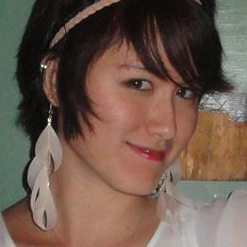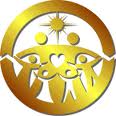
An interesting thing happened the other day that made me reflect on the role of religion in today’s culture. I asked myself if religion is still relevant.
A good friend, Catherine, repeated a comment made about her daughter, Songja. A mutual acquaintance said that on meeting Songja, she had encountered a truly pure person. That’s quite a compliment. I noted that this person had never said that about me! What was it that she saw in Songja in such a defining way? The conversation caused me to ask myself, “What do I communicate to people? What do people sense when they meet me?”
Ironically, I think these questions get to the heart of people’s objection to religion. After all, religious people don’t always express their teaching well, and too often fall short when it comes to living it. This dissonance becomes the biggest enemy of religion. In fact, it’s the reason that so many millennials are turning their backs on religious institutions while describing themselves as spiritual.
Connections and Disconnections
A key thing that religions have going for them is they’re repositories of the “the word.” They have volumes of teachings that benefit people. I personally find much inspiration in scriptures of the world. But let’s be honest, ideas and inspirations only take you so far.
Rev. Sun Myung Moon, who is a world-renowned religious leader, surprisingly taught that the goal of the church he founded is the end of the church! Who makes such a goal? He spoke like this because he saw religion as a means of reconnecting back to God, but once securely connected, religion itself becomes unnecessary. Ideally, living with God would be a lifestyle. God would be a natural part of everyday life and included in every relationship. That made a lot of sense to me.
Rev. Moon put it like this:
“The separation between God and humankind is the breaking of the connection between the Word, the substance and the heart. You therefore need to know the Word and practice it. In practicing the Word, you need to move forward with the heart of parents.”
I like this statement a lot because it emphasizes that adopting a parental heart is the best way to move forward in your life. Through developing a parental heart for others, we begin to see with God’s eyes and feel with God’s heart. It opens up new possibilities for peace and personal growth.
I was caused to reflect further on this as I listened to a National Public Radio program, “On Being”, hosted by Krista Tippett. She recently interviewed Alain de Botton who is the founder and chairman of the School of Life – a gathering of courses, workshops and talks on meaning and wisdom for modern lives.
Alain was talking about relationships. He posed an interesting question: what if we extended the same benevolence we naturally have for our children in our relationship with our spouse? Parental love always seeks the most charitable explanation for behavior, which we would otherwise find annoying or unacceptable. Benevolence is a go-to habit with our children – they must be tired, or they wouldn’t be acting like this. Or, he has a good heart underneath all that difficult behavior! What if we applied this in our friendships, at work or in political dialogue?
We bend over backwards in our efforts to extend love and forgiveness to our children but are immediately upset if our spouse can’t read our mind! Alain de Botton said that love is a benevolent process whereby two people try to teach each other how to become the best versions of themselves – this necessarily involves adopting a parental heart to one another at times.
The power of parental heart
When I considered Alain de Botton’s statement I recognized that this is what religion ultimately espouses to accomplish. Perhaps we become frustrated with religion because it gets mired down in too many rules of its own making and loses the big picture in the process.
That’s not to say that religion isn’t important or doesn’t have anything to offer – it does. I grew up attending Catholic schools and was known for being spiritually curious and devout even though I was not Catholic. The nuns and teachers saw it in me, and I also saw compassion reflected in their eyes. After all, I couldn’t participate in their Holy Communion and the best I could hope for was purgatory! Nevertheless, I gained so much from the rituals and observances.
I reflected on this recently while attending a charity event sponsored by the Catholic Church. Seeing the many priests in their frocks reminded me of the rhythm of my childhood, and the practice of confession came to mind. I don’t subscribe to the doctrine that you need a priest as intercessor between you and God. But I mused on the question: what if every week you held yourself accountable to a partner for even the little things you did that you weren’t proud of? What kind of difference would that one act make in your life?
Reflecting on your weaknesses and recommitting to your best self might just help you become the person you want to be. To be honest, I know there are things I said last week that as the words escaped my mouth I thought, Ugh, I shouldn’t have said that! What if I had a practice like confession to hold myself more accountable for who I want to be.
Don’t throw the baby out with the bathwater
Today, the waters of religion have become murky but that doesn’t mean we should throw everything out. Perhaps that’s what people mean when they say they’re not religious but define themselves instead as spiritual. They want to draw a line in the sand by declaring they don’t belong to this religion or that denomination, while at the same time affirming a personal belief in something greater than themselves. With or without religion people will always search for meaning and value. That quest is rooted in our souls and needs a way to express itself.
Peace Starts with Me
We are all looking for peace on so many different levels. Peace at home, peace in our communities, peace in the world. Peace doesn’t start with a doctrine or a religious code, but it starts when individuals choose to practice love. Then people will naturally state, “This is a man of peace, this is a woman of peace,” or, “this is a person of pure motivation.”
Peacemakers naturally embody a parent’s heart for the world. Perhaps that’s where we meet God face to face. Rev. Moon often said that the key to peace and becoming a truly loving person is to understand God’s heart. When you do, you’re drawn into a new world where you discover your own power to go beyond your limitations and prejudices. Experiencing God’s heart fuels your ability to love in a deeper way.
“Love has the power to enhance that which is insufficient, to reinforce that which is inadequate and to complete that which is lacking. That love is true love…With true love there is nothing you cannot do, nothing you cannot make. You can love even your enemy. The power of true love is not to fight, not to force, but to win over someone naturally. There is no power stronger than this.” – Sun Myung Moon












